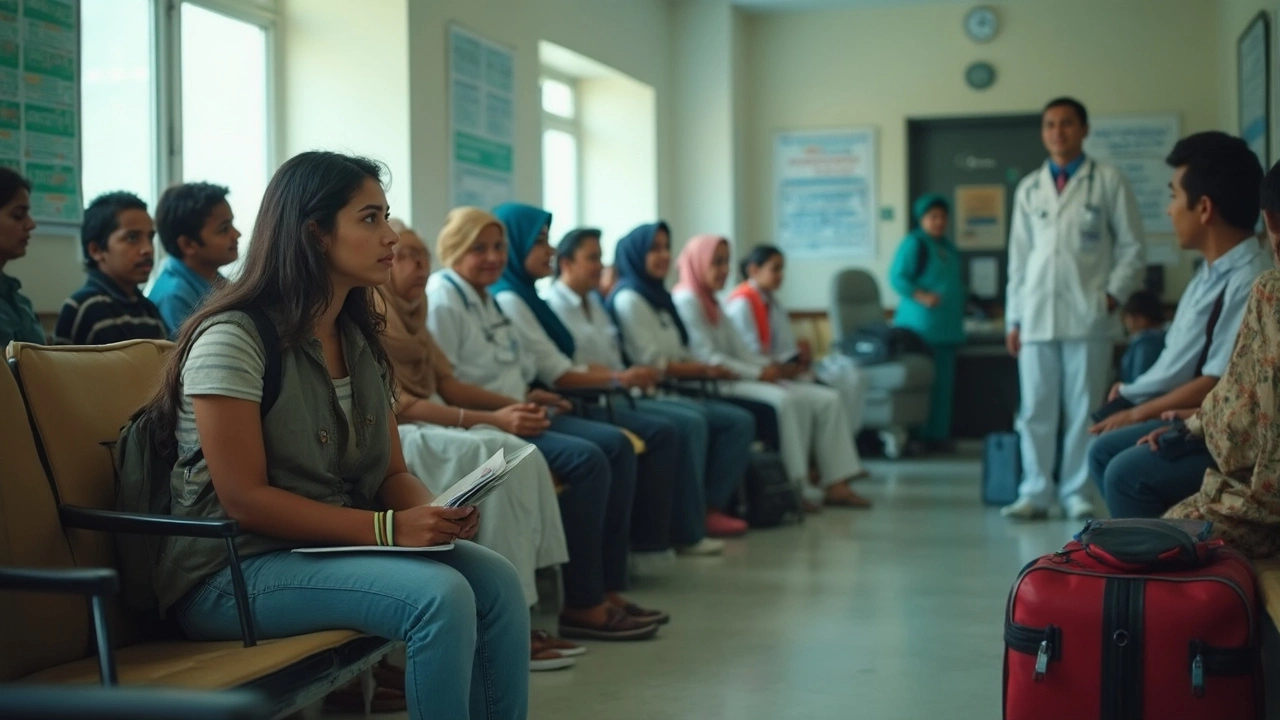Getting Sick Abroad: What Travelers Should Expect
When dealing with getting sick abroad, the experience of falling ill while outside your home country. Also known as travel illness, it forces you to navigate unfamiliar health systems, language barriers, and different medication standards.
One key companion to this challenge is medical tourism, the practice of traveling to receive medical care, often because of cost or quality differences. Another essential factor is travel health insurance, coverage that helps pay for emergency treatment, evacuation, and medication abroad. Finally, international healthcare, the varying standards and practices of medical providers around the world shapes how quickly you recover and how much you pay.
Key Factors to Consider When Illness Strikes Overseas
First, the cost of medication can vary wildly. A weight‑loss drug like Zepbound or a common prescription such as metformin might be affordable in one country and pricey in another. Understanding local pricing helps you avoid surprise bills. Second, quality rankings matter. Countries that top healthcare quality indexes—like Japan, Norway, or Iceland—often provide safer, more reliable care, which can be a lifesaver when you’re already feeling under the weather. Third, legal status of medicines differs; for example, gabapentin is a controlled substance in some regions but not in others, affecting availability and prescription rules.
Language barriers are another real hurdle. Even if a hospital is world‑class, miscommunication can lead to medication errors or missed follow‑up steps. Knowing basic medical phrases or having a translation app ready can bridge that gap. Likewise, cultural expectations influence how doctors interact with patients—some places expect you to describe symptoms in detail, while others rely on quick examinations. Adapting to these norms speeds up diagnosis and treatment.
Insurance plays a dual role: it reduces out‑of‑pocket costs and often includes medical evacuation back home if local facilities can’t handle your condition. When choosing a policy, look for coverage of chronic conditions, pre‑existing illnesses, and the ability to reimburse prescription costs. Some plans also cover telemedicine consultations, which let you speak with a doctor from your home country while you’re abroad.
Pre‑travel preparation can make the difference between a quick recovery and a prolonged ordeal. Get a comprehensive health check, update vaccinations, and gather a list of your regular medications with generic names. Carry a small medical kit—pain relievers, antacids, basic wound care—plus copies of your medical records. Knowing the nearest reputable hospital or clinic in your destination city is a smart move, especially if you’re traveling to a region with limited emergency services.
Finally, be aware of the legal landscape for controlled substances. Some drugs you take at home may be prohibited or require special permits abroad. Research local regulations early, and consider alternatives if a medication is likely to cause trouble at the border. This foresight prevents delays and keeps you focused on getting better.
Armed with knowledge about medical tourism, insurance, medication costs, and local healthcare quality, you’ll feel more confident handling any health surprise on the road. Below you’ll find a curated collection of articles that dive deeper into each of these topics, from cost‑saving tricks for popular drugs to country‑by‑country healthcare rankings. Explore the insights and practical tips to stay healthy wherever your travels take you.

What Happens If You Get Sick in Another Country? Medical Tourism Essentials
Ever wondered what happens if you get sick while traveling in another country? This guide covers everything from finding care and navigating language barriers to dealing with costs and unexpected health emergencies abroad. You’ll get real tips for handling minor and major health issues, and learn how medical tourism can change your options overseas. Expect direct advice and practical steps if things go sideways. Don’t wait until you’re in a hospital bed in Bali to think about this stuff.
read more



